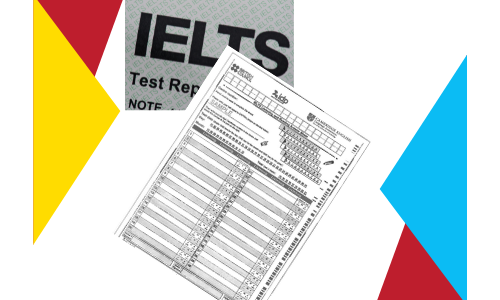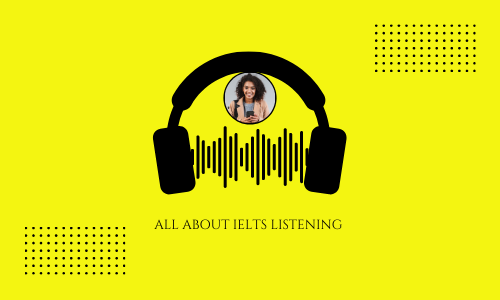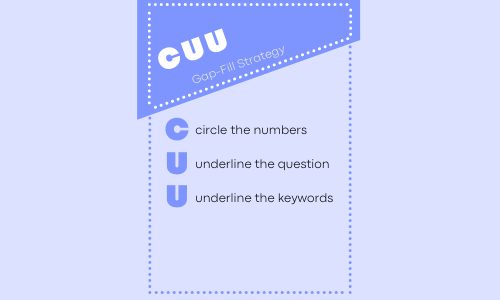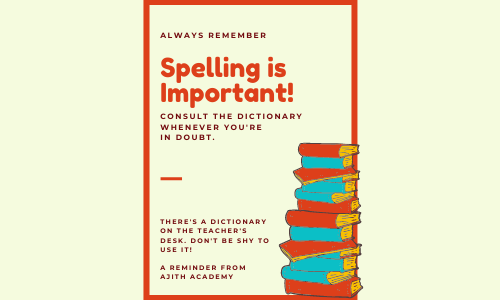
IELTS Listening test band score is very important for anyone who wants to go abroad for study or work purposes. Many students struggle with IELTS listening due to two main reasons:
- They are unable to understand the accent
- They lack presence of mind while doing the test
Both these problems can significantly reduce your band score. Here at Ajith Academy we will help you deal with these issues effectively within a short span of time, provided that you are willing to put the effort in.
First of all, here are some tips for IELTS Listening:
IELTS LISTENING TIPS: SECTION 1

This section mostly have fill in the blank questions. Sometimes multiple choice questions can also be asked. The questions are fairly easy to answer compared to other sections.

Tips for solving Fill in the blanks/Gap-fill questions:

- Read the question carefully and mark the keywords. Follow the CUU method when reading the questions.
- Focus on the words before and after the blank. For eg: if the question is : Will need a………license. You can easily predict the answer and whether it is singular or plural Guess what the answers might be by looking at the words before and after the gap. For instance, article ‘a’ before a gap tells you that the answer is a singular noun.
- Questions: Whenever the speaker in the audio clips asks a question, the reply will most probably have the answer.
Question: All ……….must be taken down
“ I presume we can have decorations in the room?”
“Yes, but you must take them down afterwards”
- Pattern: The questions and answers will be in the same order. So, no need to worry about which question should be answered. Moreover, listen for signal and signposts which gives you clues on whether the speaker is moving on to a different topic.
- Unnecessary information: A short introduction to the topic is always given for Section 2. Learn to recognize this unimportant information so that you can use this time to read the tough questions like the MCQs (Multiple choice questions)
- Reference words: Listen carefully for reference words (it, them, that, those, he, she, it, they) as answers might be given using reference words. For instance, you have brought jewellery, those should be in the locker box.
- Plurals: Pay close attention to plurals. When you transfer your answers, make sure that you have put the ‘s’ at the end of plural nouns.

Spelling: Spelling is extremely important. You will lose marks if you spelled the words wrong. Spend time on learning words with difficult and confusing spelling patterns. For eg: Forest, not Forrest like in the movie ‘Forrest Gump’.
IELTS LISTENING TIPS: SECTION 2
Usually, Section 2 audio will be a monologue (where only one person is speaking) and it would be an everyday social topic.
- The speaker will give information or instructions
- MAP questions might come in this section
Tips for solving Map:
- Always check the number of words allowed
- The answer will always be content words rather than grammar words (articles, auxiliary verbs, pronouns etc.)
- Make sure you know where you are in the map. (‘You are here’ will be given in the map)
- Read the main locations already given in the map, aloud in your mind. This will help you to follow the directions well.
- Write on the question paper as you listen. Do not worry about the spelling as you will have time at the end of the test (10 mins for paper-based test) to transfer your answers correctly from the question paper to the answer sheet.
- Most importantly, practise the language of directions (turn right, turn left, facing the, opposite to). Do some IELTS listening practice tests on maps
- Emphasis: Some sentences will be emphasized more. Such sentences most likely have the answers.
Look at the given below given questions from Cambridge IELTS Listening test:

In the listening audio clip below, you will notice the emphasis given to certain sentences:
- ‘We have a bookshop, which specialises in books about drama, and that attracts plenty of customers’
- ‘A surprise success is the workshop on making puppets- we happen to have someone working here who does it as a hobby, and she offered to run a workshop, it was so popular we’re now running them every month!’
Ordering and numbering: You can come across many instances where the speaker say: ‘There are mainly 3 ways…. Or there are three main types of…..’ etc.
The listening clip below has given emphasis and order to the answer by saying ‘one way’.
- ‘One way is by organising backstage tours, so people can be shown round the building and learn how a theatre operates’
So by identifying such parts of the conversation where more emphasis is given, you can easily find the answer.
IELTS LISTENING TIPS: SECTION 3
Usually, Section 3 audio will a conversation between two or more people about an academic subject.
Tips for solving MCQ questions
- Read the questions properly. Skim through the options.
- Pay particular attention to spelling and plurals
- Avoid listening to unnecessary information given in the beginning. Use that time to read the questions.
- Keep an eye on the next question so that if you missed the question, you know when the speaker has moved on to the next question.
- Fillers such as ‘Well’, ‘so’, ‘now’, ‘let’s’, ‘yeah’, ‘oh right’, ‘oh yes’, ‘exactly’, ‘ok’ etc. gives signals that we have to move to the next question.
- New point: Whenever the speak move to a new point or subject, make sure you pay attention to those signals (‘so’, ‘with regards to’, ‘when it comes to’, ‘moving on now to’ ) as its time to move to the next question
‘Right, now when the event is over we do ask that the premises are left in good condition. Sothere’s a locked cupboard and you’ll be informed of the code you need to open that.’
‘Now I want to tell you about our workshops’
- Suggestions: Suggestions made in conversations using ‘I’d’, ‘would’, ‘should’, ‘will have to’ or any other phrases that indicates suggestion, most likely will have the answer or will lead you to the next question.
‘You’ll have to see about getting a license if you’re planning to have any music during the meal.’
‘I am afraid they’ll have to stay in the car park, unless they’re guide dogs’.
‘They should park their van round the back and use the stage door there.’
‘Perhaps we should just make an appointment to see one of the science professors.’
- End of sentences: Most of the times, answers will come at the end of the sentences. So pay close attention to the keywords or change in tone that signals the end of the sentence. Here are some examples:
‘At the moment I’m looking for a flat to rent here, so I’m in a hostel from Monday to Friday’.
‘My ambition is to go into parliament eventually, so my major subject is politics.’
‘And since they are exposed, they need to be able to find some sort of shelter, or cover themselves up, so they don’t get too hot.’
- ‘But’ is a common word used to mention two sides of a point and also to give constructive criticism. For instance, “ This literature review of this project is excellent, but the findings are inconclusive”. Here you can see a constructive criticism that is given. So whenever a positive side is given about something, immediately expect a negative side to it which most likely will have the answer.
For e.g.: ‘And putting these thoughts into words can relax them and help them overcome the psychological factors that lead to poor performance. Yeah. But what the researchers in the study hadn’t expected was that this one activity raised the women’s physics grades from the C to the B range.’
‘Most shops are small independent stores, which is good, but many people prefer to use supermarkets and department stores in nearby large towns, as there are so few well-known chain stores here.’


